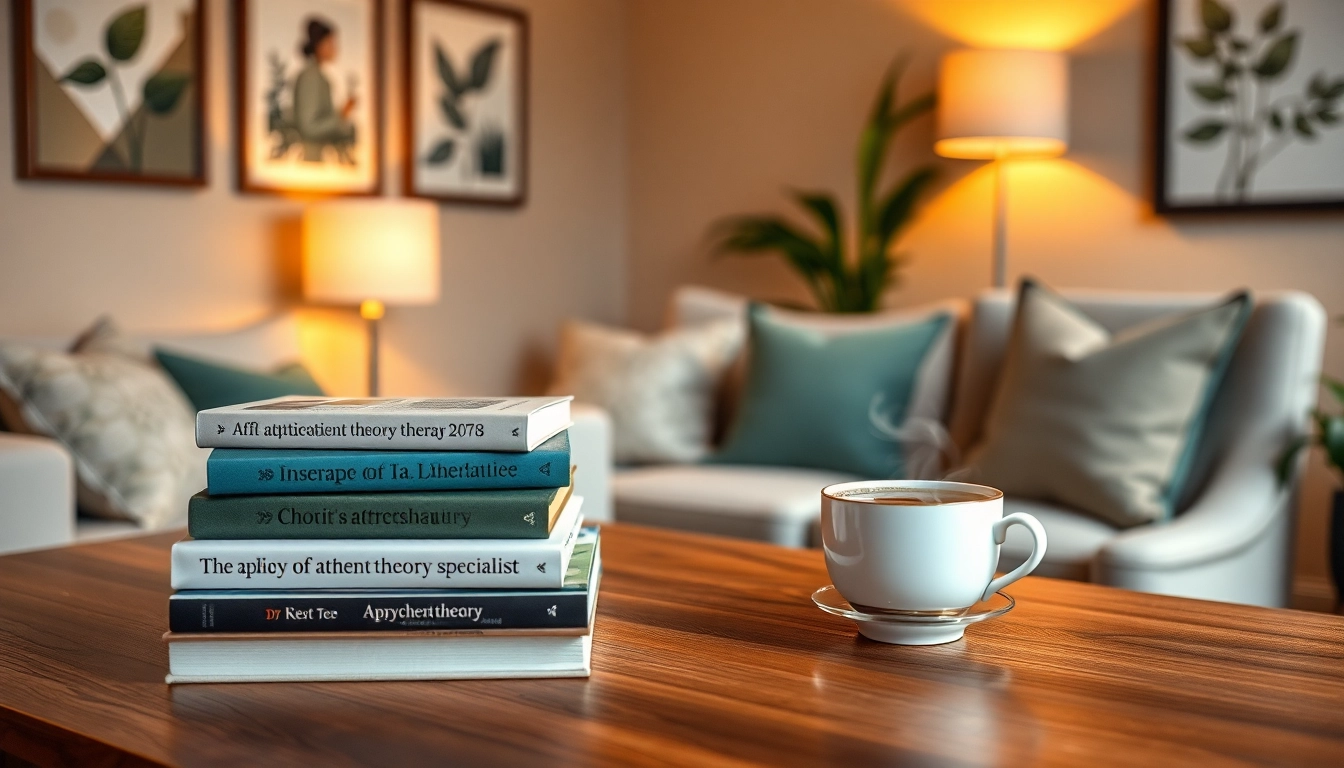What is Attachment Theory?
Attachment theory is a psychological framework that explores the bonds formed between individuals, particularly in early childhood between children and their primary caregivers. This theory elucidates how these early interactions influence emotional and relational patterns throughout one’s life. It was pioneered by the British psychologist John Bowlby in the mid-20th century, emphasizing the importance of the caregiver-child relationship in shaping a child’s mental health and emotional development.
Historical Background of Attachment Theory
John Bowlby developed attachment theory in the 1960s, influenced by psychoanalytic theory, ethology, and cognitive psychology. Bowlby’s observations were largely initial studies that involved children who experienced separation from their families. His work revealed that children could be categorized based on their responses to separation and reunion with caregivers, leading to the classification of different attachment styles. The theory gained further importance through the contributions of researchers like Mary Ainsworth, who developed the “Strange Situation” assessment to observe attachment behaviors in children.
Key Concepts of Attachment Theory
The foundational premise of attachment theory is that children are born with an inherent instinct to seek proximity to primary caregivers. This bond develops through consistent and responsive interactions, particularly during stressful times, fostering a sense of security. The key concepts include:
- Attachment: The emotional bond formed between a child and caregiver.
- Secure Base: The caregiver acts as a secure base from which the child can explore their environment.
- Internal Working Models: The mental representation of self and others formed through attachment experiences.
Types of Attachment Styles
Research indicates that there are four primary attachment styles based on a child’s behavior in the presence of a caregiver:
- Secure Attachment: Characterized by trust and a strong bond with caregivers, allowing exploration and comfort in seeking proximity.
- Avoidant Attachment: Marked by emotional distance, these individuals tend to avoid closeness and may suppress their feelings.
- Ambivalent/Resistant Attachment: Exhibits anxiety regarding caregiver availability, leading to clinginess coupled with frustration.
- Disorganized Attachment: A mix of behaviors, often stemming from trauma or inconsistent responses from caregivers, leading to confusion.
Importance of Consulting an Attachment Theory Specialist
Understanding attachment styles is pivotal for personal development and relational dynamics. Engaging with an attachment theory specialist is crucial for individuals seeking to improve their emotional health and interpersonal relationships.
Benefits of Attachment-Based Therapy
Attachment-based therapy primarily aims to help individuals understand how their attachment styles manifest in their relationships and emotional health. Some of the key benefits include:
- Enhanced Self-Awareness: Clients learn about their attachment styles and how these affect their interactions.
- Improved Relationships: Understanding attachment can help repair and enhance personal and professional relationships.
- Emotional Regulation: Clients develop skills to manage emotions stemming from attachment-related anxiety or avoidance.
- Trauma Processing: Helps individuals address and heal from traumas affecting their attachment patterns.
When to Seek Help from an Attachment Theory Specialist
Seeking help from an attachment theory specialist can be particularly beneficial during the following scenarios:
- Experiencing repeating patterns in relationships that lead to conflict or distress.
- Struggling with low self-esteem or feelings of inadequacy in social situations.
- Facing challenges in forming intimate relationships or resolving attachment-related issues.
- Processing past trauma that influences current relational dynamics.
How an Attachment Theory Specialist Can Assist You
An attachment theory specialist can provide tailored guidance through various therapeutic approaches that consider your attachment history and its implications. They may employ techniques such as:
- Emotionally Focused Therapy: Centered on fostering secure attachment in couples by enhancing emotional responsiveness.
- Mindfulness Practices: Helping clients develop mindfulness skills to increase awareness of their attachment responses.
- Behavioral Interventions: Assisting clients in identifying and changing maladaptive behaviors stemming from insecure attachment styles.
Techniques Used by Attachment Theory Specialists
Diverse therapeutic techniques operationalized by attachment theory specialists focus on enhancing understanding and improving relationships:
Common Therapeutic Approaches
Specialists utilize various approaches within their practice, including:
- Attachment-Focused Therapy: Concentrates on the reparation of dysfunctional attachment styles through creating secure emotional experiences.
- Psychodynamic Therapy: Explores how early attachments influence current behaviors and relationships.
- Cognitive-Behavioral Therapy (CBT): Incorporates strategies to shift negative thought patterns regarding attachment and relationships.
Integration of Attachment Theory in Therapy
Attachment theory integration in therapeutic practice enriches the content and structure of therapy sessions. Clinicians draw on attachment styles to:
- Identify core issues affecting the client’s relationships.
- Facilitate deeper emotional connections between clients and their therapists, mirroring healthy attachment experiences.
- Guide clients in developing healthier relational patterns by rehearsing new closeness strategies in a safe environment.
Case Studies and Success Stories
Numerous studies and anecdotal evidence illustrate the success of attachment-focused interventions. A notable example includes a client with an ambivalent attachment style who, through therapy, recognized patterns of anxiety and clinginess in relationships. Guided by their therapist, the client learned to communicate needs more effectively, leading to healthier relationships and increased confidence.
Finding the Right Attachment Theory Specialist
Finding an effective attachment theory specialist is essential for successful therapeutic outcomes. Here are some tips and guidelines.
Qualities to Look for in a Specialist
When searching for an attachment theory specialist, consider the following qualities:
- Qualifications: Ensure they possess credentials in attachment theory and related therapeutic techniques.
- Experience: Look for a practitioner that has practical experience working with your specific attachment-related issues.
- Empathy and Rapport: A good therapist should establish a trusting relationship, fostering open dialogue.
- Flexibility: The specialist should be adaptable in approach, accommodating individual treatment needs and preferences.
Questions to Ask During Your First Session
During your initial consultation, consider asking the following questions:
- What is your therapeutic approach regarding attachment theory?
- Can you provide examples of how you have helped clients with similar issues?
- How do you plan to tailor the therapy sessions to fit my unique attachment style?
- What are your thoughts on the length of therapy and expected outcomes?
Resources for Finding an Attachment Theory Specialist
Several platforms can connect you to an experienced attachment theory specialist, including:
- Online therapist directories.
- Professional associations for clinical psychologists or counselors.
- Referrals from healthcare providers or mental health professionals.
The Future of Attachment Theory in Therapy
The relevance of attachment theory continues to evolve, and its integration into therapeutic practices is increasingly evident.
Emerging Research and Trends
Ongoing research in attachment theory is revealing new insights regarding the neurobiology of attachment, cultural influences on attachment styles, and the impact of attachment across the lifespan. Innovations in technology, such as teletherapy, have also expanded accessibility to specialists trained in attachment theory.
Continued Education for Attachment Theory Specialists
For specialists in the field, keeping abreast of advancements in attachment theory through workshops, seminars, and scholarly articles is essential for delivering effective therapy. This ongoing education enables them to apply the latest understanding and practices in their therapeutic approaches.
Contributions to Mental Health Practices
Attachment theory has significantly enriched the field of mental health, influencing various therapeutic practices. It advocates for a more compassionate understanding of human relationships, urging practitioners to consider early attachment experiences when addressing mental health challenges.



